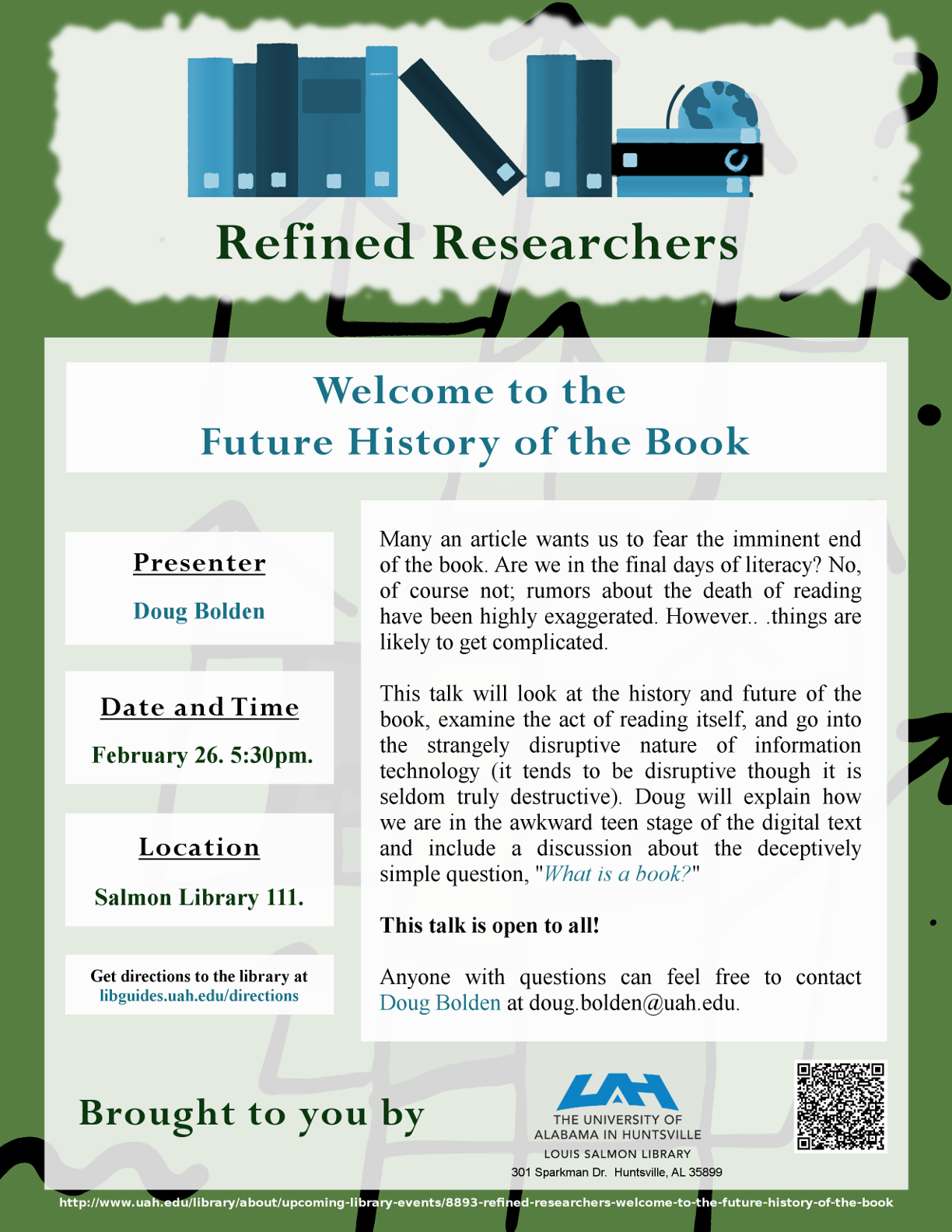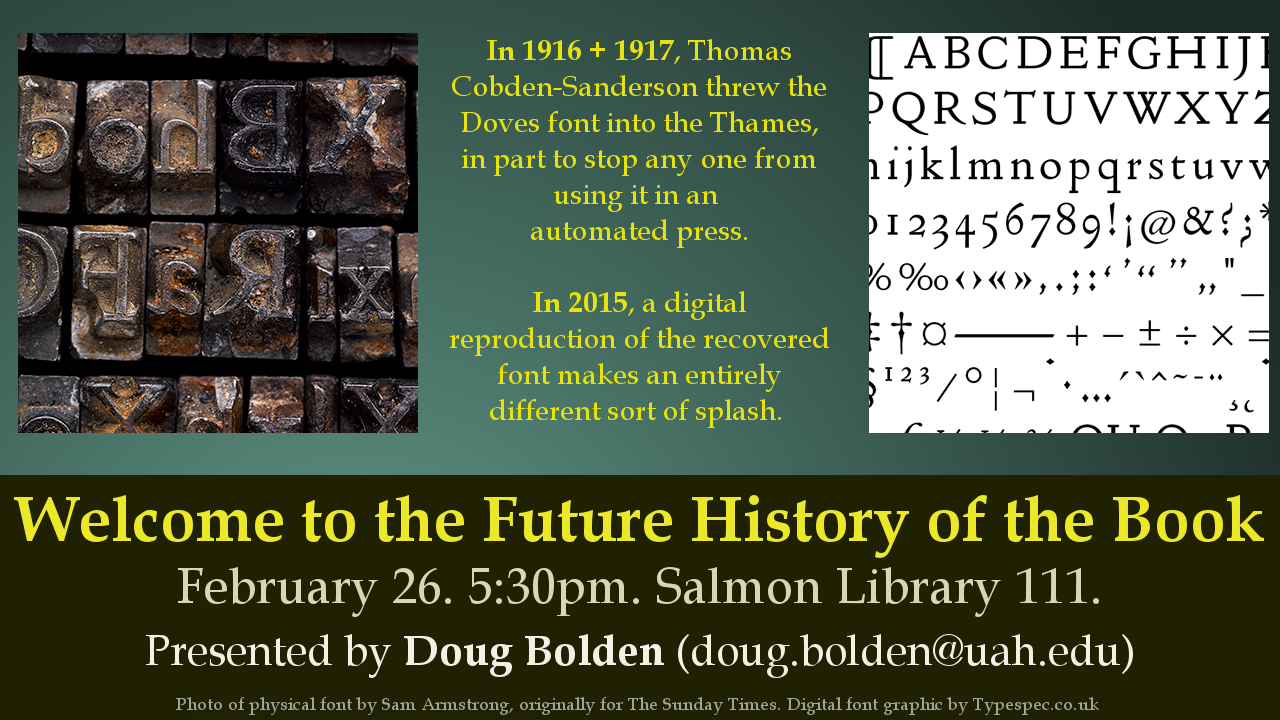This coming up Thursday, in Salmon Library room 111 at 5:30pm, I will host a talk, Welcome to the Future History of the Book. It will be a look at the past, present, and future of the book, of information technology, of literacy, and of several related topics. It will blend headlines and actions related to the promotion (or destruction) of books and information and face several questions head on. Five of those are below.
This talk is open and free to all. Bring a friend!
Question 1. What is a book?
Both in the sense of being hard to say what does and does not constitute a book (for instance, do audiobooks count? Do ebooks? Do collections of articles? Short stories? Does it have to be intended to be a book? Does it have to be a good book? Is there a certain minimum page count? A certain minimum Lexile rating?) but also in the sense of saying what degree of bookness something has to have to receive the sense of an elevated status. There will be a short demonstration of this difficultly.
Question 2. Is the book really dying?
No. Changing, sure, but that was bound to happen (pun not intended). However, it might get complicated.
Question 3. If the book isn’t really dying, why have there been so many articles about the death of books?
Conversely, if the book really was dying, to whom would all those articles be appealing? What is the purpose of worrying about the death of books (and libraries, literacy, etc) if it is really inevitable and no one cares?
Question 4. Can information technology be disruptive but not destructive?
Think about the printing press, the automated printing press, cheaper paper, emails, instant messages, text messages, FaceTime, VHS cassettes, CDs, lossless music files. Each of these things altered something that was before and changed how the average person interacts with information. Suddenly your average person could afford a book, or could store entire music libraries on a device that fit in their hand, or could record a favorite TV show and watch it later. Most of these things have been decried by someone, and some of them have had a major impact on our daily lives, but rarely do they destroy the core of the medium. Sure, your laser discs might not work any more, but the principle of watching movies at home has not be utterly destroyed, merely improved (for whom is a whole other question).
Question 5. What might a book look like in 50 years? 100?
Now we’re talking. Maybe literally!
See the flyer below if you want to see more information. Or go to the Welcome to the Future History of the Book event page. You can contact me at doug.bolden@uah.edu for more information, if you need.

